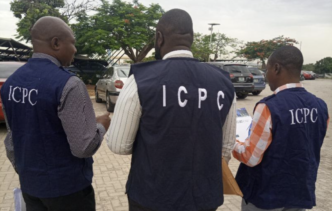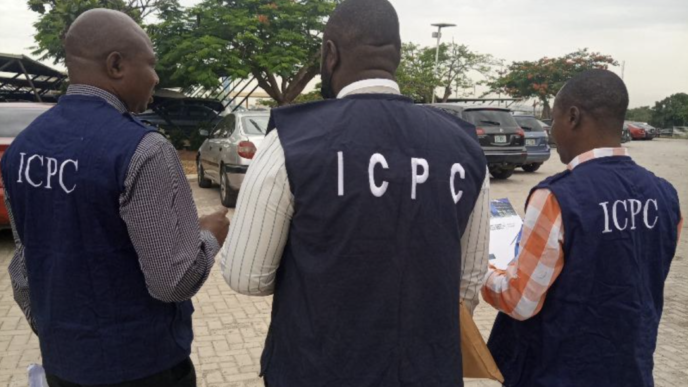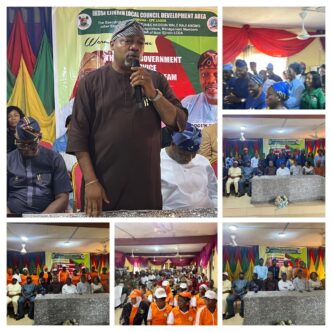The traditional ruler of Odo Noforija Kingdom in Epe Division, His Royal Majesty Oba Babatunde Ogunlaja JP, has issued a passionate appeal to the Ogun State Government over the escalating toll charges at the Mojoda–Odo-Agboju axis.
EpeInsights reports that the Monarch noted that the escalating toll charges are crippling local livelihoods and stifling economic activity in the region.
Speaking from his palace, the monarch described the tollgate’s financial burden as “unsustainable,” especially for local farmers, traders, and low-income residents who rely on the route multiple times daily for their survival.
“People come to me daily with complaints. These tolls are affecting not just motorists but entire households whose daily earnings are wiped out by repeated toll payments,” Oba Ogunlaja stated.
According to the monarch, many farmers in Mojoda own farmlands just across the tollgate in Odo-Agboju. Some cross the gate four to five times each day during planting or harvest seasons, often paying ₦200–₦300 per trip. Over time, this adds up to a significant portion of their already slim margins.
One particularly striking example cited was that of a local food vendor who pays ₦1,000 daily just to travel to and from her business location—an amount that effectively erodes her entire profit margin.
“This woman lives just across the tollgate and sells at Mojoda. She’s now questioning whether it’s even worth going out to earn a living,” the monarch lamented.
Commercial drivers and traders have also expressed deep frustration. Some, according to the traditional ruler, have begun avoiding the route altogether—resulting in fewer market trips, increased transportation costs, and reduced access to goods and services for residents.
“We’re not saying tolls shouldn’t be collected. But they must be reasonable and considerate of the socioeconomic realities of the people,” Oba Ogunlaja emphasized.
“Development must not come at the cost of survival.”
The monarch urged the Ogun State Government and relevant transport authorities to revisit the tolling framework, proposing interventions such as reduced or subsidized fees for frequent users, exemptions for local residents, or even periodic reviews aligned with inflation and income levels.
He warned that if the issue remains unresolved, it could escalate into broader economic stagnation and social unrest, especially in border communities where residents frequently straddle both Lagos and Ogun states for livelihood.
“Tolling must serve public good not punish the people. We need a human-centered approach to infrastructure management,” he concluded.











